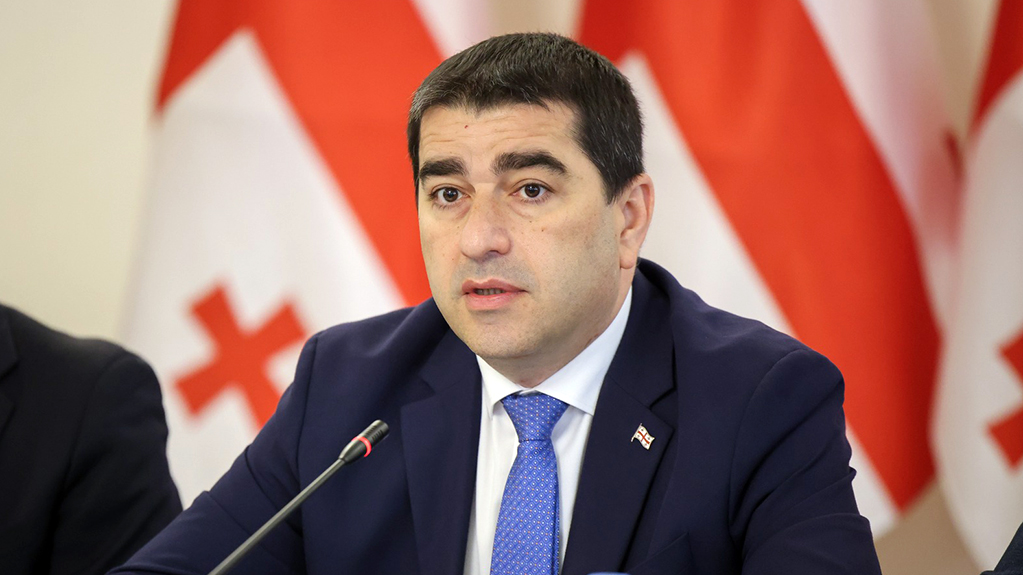The Georgian Parliament will not consider the President's motivated comments on the Russian Law regarding so-called Foreign Agents. This decision was announced by the Parliament Chairman.
News
Shalva Papuashvili stated that at today's bureau session, the President's veto will be handed over to the legal affairs committee for discussion, and it is expected to be defeated in the next session week.
"One thing is important: the excessive intervention of foreigners in the law On transparency of foreign influence indicates that this law is perhaps the most Georgian law. Therefore, of course, the Parliament will override this veto, as it once again demonstrates the Georgian nature of this law. So many foreigners - who are themselves donors and funders - intervened in this matter, they came out at the rallies in the end. It shows precisely that this is one of the most Georgian laws that this parliament adopts. Therefore, of course, we will overcome the veto," said Papuashvili.
Today, Prime Minister Irakli Kobakhidze stated that Salome Zourabichvili "rudely vetoed the law," thereby "closing all space for a healthy discussion."
The President vetoed the Russian Law on May 18. Salome Zourabichvili's argument is that the law meticulously repeats the spirit of the Russian Law and, in fact, is the same as the law of the so-called Agents recalled on March 10, 2023, from which the words "agent of foreign influence" were replaced by the term "carrying the interests of a foreign power," which is the definition of the term "agent." The President notes that the legal opinion made by the OSCE/ODIHR in July 2023 clearly confirms that the law is undemocratic, against basic human rights and freedoms, and European standards.
Salome Zourabichvili believes that the law is unconstitutional because it contradicts Article 22 of the Constitution, which guarantees "Freedom of Association." The law forces organizations to register as agents of a foreign power, leading to their stigmatization. It creates conditions to restrict the activity of organizations and eventually cancel them. Additionally, it contradicts Article 15 of the Constitution, which protects the "rights to inviolability of private and family life, personal space, and communication." The law imposes, among other things, the obligation to provide a special category of personal data, which violates the constitutional rights of a person to have their personal and family space protected from any unjustified interference. In this regard, the law serves to intimidate and instill fear. It is contrary to Article 11 of the Constitution, which guarantees the "right to equality." The law is discriminatory as it covers only a specific segment of unions, and it is unjustified as to why it discriminates against non-profit organizations based on receiving foreign funding. In assessing the law in force in Hungary, the European Court of Justice concluded that the distinction between legal entities in Hungary based on the source of funding constitutes indirect discrimination. This finding indicates that the law contradicts Article 78 of the Constitution, which promotes "Integration in European and Euro-Atlantic structures." The law, in its form and content, represents a real obstacle to Georgia's European integration. The position of the official structures of the European Union is clear: the law goes against European values and requirements for a country with the status of a candidate for EU membership. Additionally, the law directly contradicts the obligation imposed by the constitution on constitutional bodies to take all measures for the integration of the country into the European Union. This law cannot be improved.
"The law in its entirety is unconstitutional, therefore un-Georgian, un-European, and undemocratic. Thus, it is not subject to improvement by making changes to it, because its essence, content, and principles are not acceptable. Accordingly, the repeal of the law is without alternative and represents the will of the Georgian people. Taking into account all of the above, we suggest that the law be repealed as soon as possible, on the next day after its enactment," read the President's motivated remarks.
To override the president's veto, the support of 76 members of parliament is needed, and the parliamentary majority - Georgian Dream and People's Power - has 83 votes. After overriding the veto, the Parliament votes again on the original version of the bill. If Salome Zourabichvili does not sign the Russian Law again, then the chairman of the parliament will sign it. After publication, the law shall be deemed to have been enacted.















